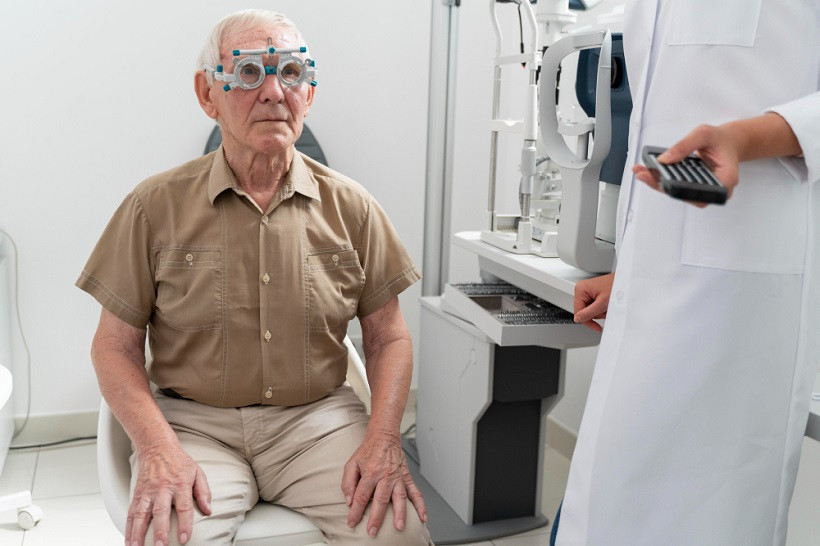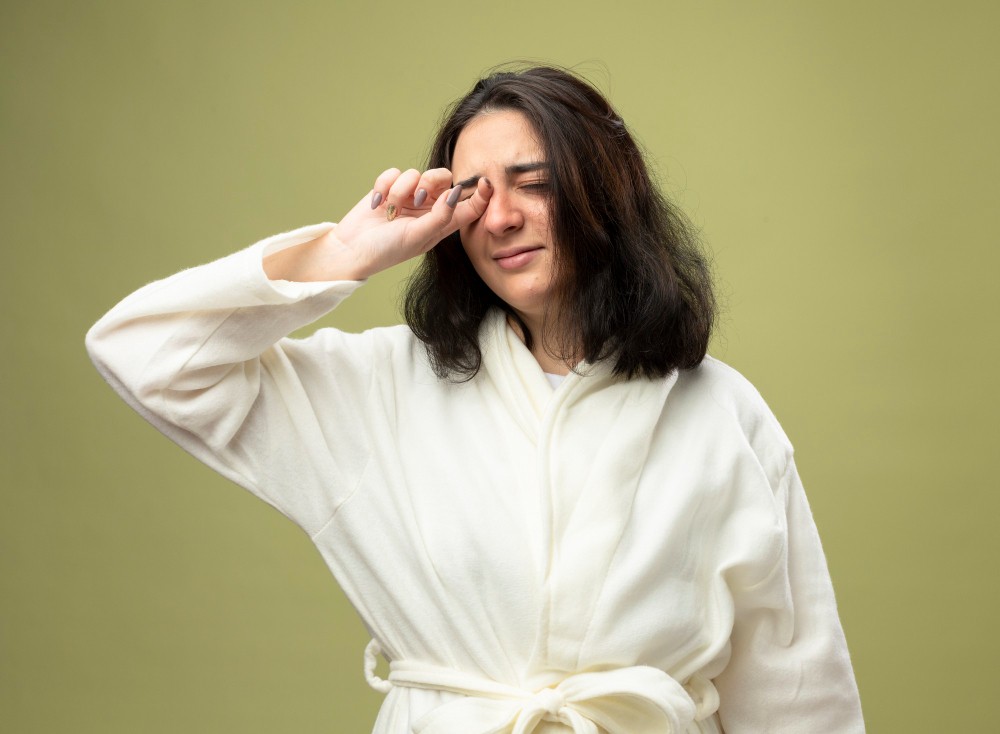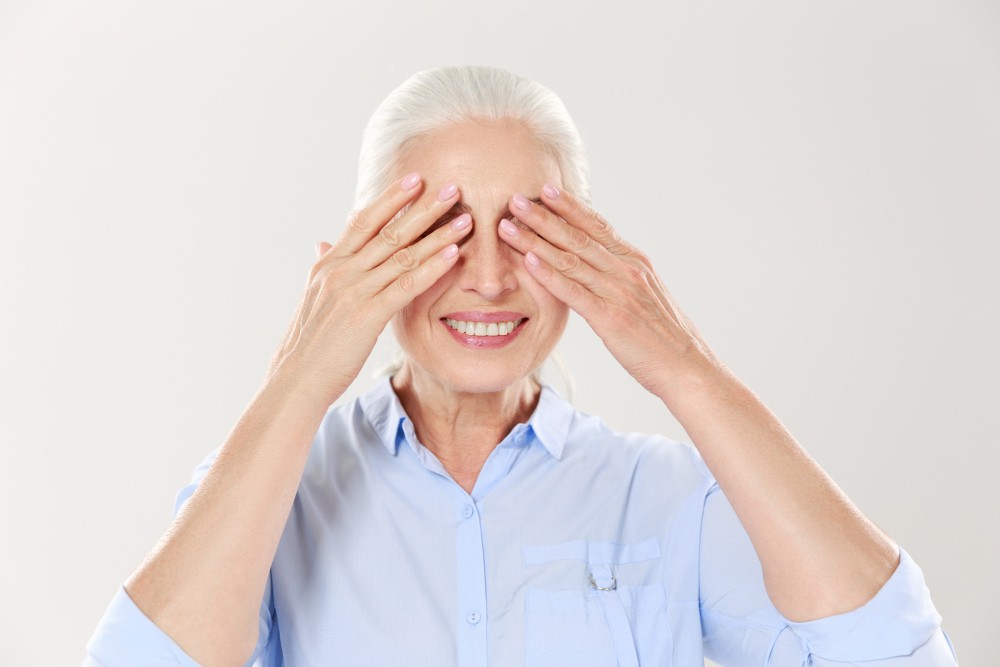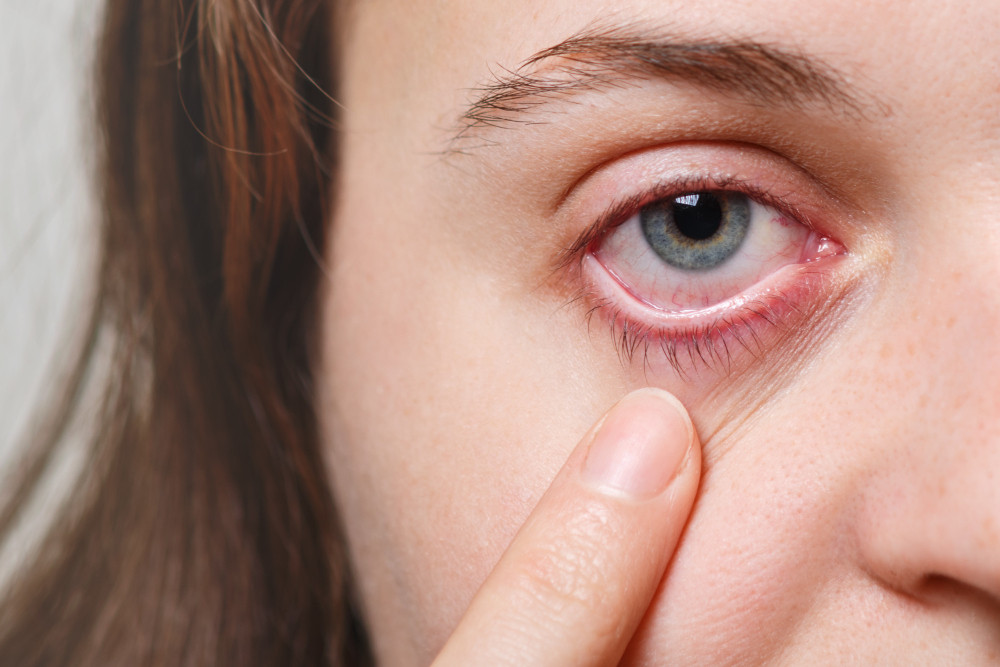Seiring dengan bertambahnya usia, fungsi mata dan penglihatan akan melemah. Melemahnya organ mata dapat menimbulkan berbagai macam masalah, namun hal ini dapat dicegah dengan melakukan pemeriksaan rutin mata, terutama jika Anda menderita penyakit kronis seperti diabetes.
Masalah Mata Akibat Penuaan
Berikut adalah masalah mata yang rentan muncul di usia tua:
Presbiopia
Salah satu masalah mata yang mungkin dialami terkait dengan bertambahnya usia disebut presbiopia. Presbiopia atau yang sering disebut mata tua adalah kondisi di mana seseorang tidak dapat melihat benda dengan jelas akibat proses penuaan.
Penanganan presbiopia dilakukan dengan memberikan lensa cembung atau plus agar penglihatan menjadi jelas. Lakukan pemeriksaan mata rutin untuk mencegah kondisi penglihatan semakin buruk.
Mata Kering
Mata kering (keratoconjunctivitis sicca) terjadi ketika kelenjar air mata tidak cukup memproduksi air mata untuk melembapkan mata. Akibatnya mata terasa tidak nyaman, gatal, terbakar bahkan dapat menyebabakan kehilangan penglihatan.
Umumnya dokter akan memberi obat tetes air mata buatan untuk menjaga kelembapan mata. Namun pada kasus yang lebih serius mungkin dibutuhkan pembedahan.
Katarak
Katarak adalah perubahan lensa mata yang seharusnya jernih menjadi keruh yang menyebabkan menurunnya kemampuan penglihatan. Gejalanya seperti pandangan kabur atau berawan, penglihatan ganda, dan sensitif terhadap cahaya.
Pada awal perkembangannya, katarak dapat diatasi dengan penggunaan kacamata. Namun, jika kondisi dan gejala katarak semakin berkembang, dokter akan merekomendasikan Anda untuk menjalani tindakan operasi, dimana lensa yang keruh akan diangkat dan digantikan dengan lensa baru.
Glaukoma
Glaukoma adalah kondisi kelainan pada mata yang terjadi akibat kerusakan saraf optik atau saraf penglihatan. Kerusakan saraf optik bisa mengganggu fungsi penglihatan. Saraf optik dapat mengalami kerusakan karena adanya peningkatan tekanan bola mata yang tidak normal.
Peningkatan tekanan ini dapat terjadi karena adanya penumpukan cairan mata di dalam rongga mata. Normalnya, cairan mata akan diproduksi dan mengalir keluar melalui sudut di antara iris dan kornea.
Bila produksi cairan mata berlebihan, atau adanya hambatan pada proses pengaliran cairan mata, bisa terjadi penumpukan cairan mata. Jika terus berlanjut, tekanan bola mata akan meningkat dan menjadi penyebab terjadinya glaukoma.
Apabila tidak diobati dan dikontrol dengan baik, maka glaukoma dapat menyebabkan kehilangan penglihatan atau kebutaan permanen.
Degenerasi Makula
Degenerasi makula atau disebut Age-related Macular Degeneration (AMD) adalah penyakit mata yang dapat memburuk dari waktu ke waktu, dan biasanya menyebabkan hilangnya penglihatan secara permanen pada orang di usia 60 tahun ke atas.
Degenerasi makula terjadi ketika bagian tengah kecil retina, yang disebut makula menjadi lemah. Penyakit ini terjadi seiring bertambahnya usia. Pada awalnya degenerasi makula tidak menyebabkan kebutaan, namun menyebabkan masalah penglihatan yang parah.
Retinopati Diabetekum
Retinopati diabetikum adalah penyakit mata akibat komplikasi dari penyakit diabetes melitus yang tidak terkontrol. Gula darah yang tinggi pada penyakit diabetes menyebabkan kerusakan pembuluh darah di retina, yaitu lapisan belakang mata yang peka terhadap cahaya dan berfungsi mengirimkan sinyal ke otak.
Awalnya, gejala yang muncul bersifat ringan seperti penglihatan tidak jelas saat melihat jauh atau bahkan tidak menimbulkan gejala.
Seiring perkembangannya, Anda mungkin akan melihat bintik-bintik (floaters), penglihatan memburuk saat malam hari, dan penglihatan kabur. Pengelolaan kadar gula yang baik secara signifikan dapat menurunkan risiko penyakit ini.
Karena terjadi seiring bertambahnya usia, Anda mungkin hanya bisa memperlambat atau menurunkan risikonya dengan memeriksakan kondisi mata, mengonsumsi nutrisi untuk menjaga kesehatan mata, menjalani perilaku hidup sehat serta mengelola penyakit kronis yang Anda alami dengan baik. Kunjungi dan periksakan diri ke dokter apabila Anda mengalami gejala yang memengaruhi penglihatan.
Mau tahu informasi seputar penyakit lainnya? Cek di sini, ya!
- dr Nadia Opmalina
Atli Arnarson BSc, PhD (2019). 8 Nutrients That Will Optimize Your Eye Health. Available from: https://www.healthline.com/nutrition/8-nutrients-for-eyes
Cleveland Clinic (2020). Common Age-Related Eye Problems. Available from: https://my.clevelandclinic.org/health/articles/8567-common-age-related-eye-problems
Mayo Clinic (2022). Cataracts. Available from: https://www.mayoclinic.org/diseases-conditions/cataracts/symptoms-causes/syc-20353790
Cleveland Clinic (2020). Glaucoma. Available from: https://my.clevelandclinic.org/health/diseases/4212-glaucoma
WebMD (2022). Age-Related Macular Degeneration. Available from: https://www.webmd.com/eye-health/macular-degeneration/age-related-macular-degeneration-overview
Mayo Clinic (2020). Pink eye (conjunctivitis). Available from: https://www.mayoclinic.org/diseases-conditions/pink-eye/symptoms-causes/syc-20376355












